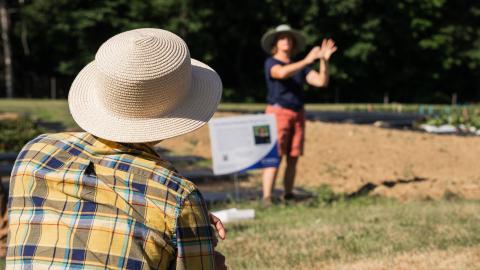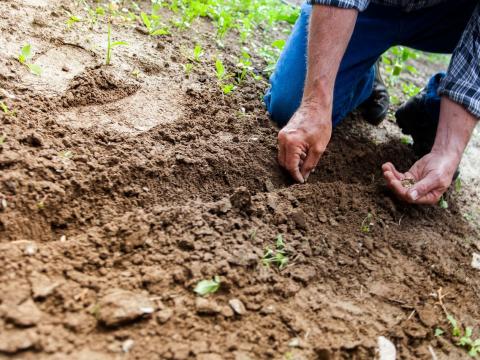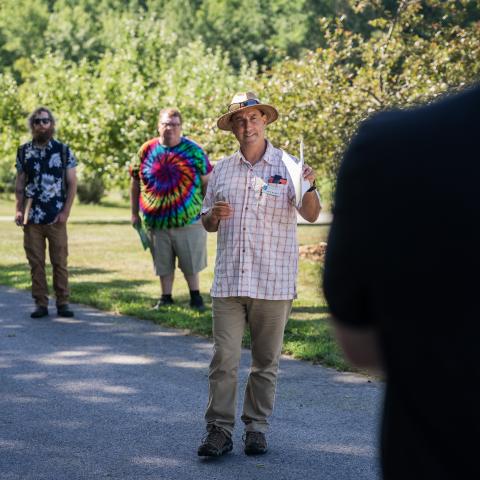Northeast Sustainable Agriculture Research and Education supports New Hampshire Farmers and Researchers

Forget steaming linens — have you ever steamed soil? Soil steaming is regaining popularity among farmers as a more ecological method to control weeds and other pathogens. Chickweed, a small, low-growing weed that does well in winter months when many N.H. growers are producing spinach, is controlled particularly well by the high-heat steam treatment.
This practice is slowly being adopted by farmers in N.H. because it helps eliminate the need for herbicides and labor-intensive hand weeding in winter crop production and improves yield of crops like tomatoes and winter spinach. Key to this adoption is a partnership with the funding agency Northeast Sustainable Agriculture Research and Education (SARE), the Cheshire County Conservation District (which helped secure funding for the steam machine) and the innovative farm partners who have been trialing this equipment.

A group of agriculture leaders from across the Northeast visited New Hampshire this past summer to learn about soil steaming and other innovations that N.H. farmers are utilizing to meet sustainability goals. SARE is in every U.S. state and territory. It is a regionally competitive grant and education program.
In the Northeast, there are six different grant programs suited to farmers, graduate students, agriculture service providers and researchers. There have been over 100 projects conducted in N.H., with $4.6 million in funding received since 1988. In July 2022, grant administrators, northeast SARE staff and state coordinators from each of the northeast region states visited the Granite State to learn about sustainable agriculture in N.H.
N.H. SARE State Coordinator Olivia Saunders organized the tour around community and collaboration, two areas where N.H. agriculture shines.

A large portion of the tour was spent at Stout Oak Farm in Brentwood to learn about land access challenges. While there, a panel of farmers spoke about the challenges of accessing land in the state, and how SARE as a funding source can better address this need. Later in the day, a session highlighted the collaborative distribution models that are finding success in N.H. Beginner farmer Liz Wiley of Fen Farm spoke passionately about how collaborative distribution has allowed her small farm to access big markets and has freed up her time to focus on farming and not on selling and distribution. The tour also stopped at the Woodman Horticulture Farm in Durham, N.H. to learn how the University is addressing the research needs of the agriculture community.
The tour showed why, especially in a small state, it’s important that farmers and service providers collaborate to accomplish more, together.
This collaboration is enhanced through SARE’s efforts to help farmers and researchers innovate and try new ideas to help make farming more sustainable. Many of the projects supported by SARE have started out as a novel idea, with a farmer not yet sure if the idea or practice will pay off. Through financial support from SARE, combined with technical support from UNH Extension and outreach efforts, some of these ideas are now common practice within the agriculture community.
The soil steamer is a great example of how SARE has helped farmers develop new tools and information to implement new practices on their farms. There is a myth in agriculture that farmers are independent types, but farmers need to be well connected and rely on each other for support, advice, comradery, equipment sharing and more.
SARE is an important organization for farmers to continue to access to build knowledge and develop new skills. When the farming community freely shares this knowledge, we all grow and create more resilient food systems.
To learn more about the research supported by Northeast SARE or about the current grant offerings, contact N.H.’s state coordinator Olivia Saunders, Olivia.Saunders@unh.edu.